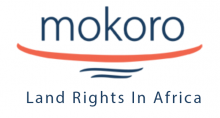Resource information
The complaints procedure of the Roundtable on Sustainable Palm Oil (RSPO) is one of the options available to communities threatened by the negative impacts of the palm oil industry. Drawing on direct experiences of supporting communities to use it in Indonesia and Liberia, the report summarises how communities can get the most out of this procedure. Realistic outcomes include a temporary freeze on plantation development while longer term solutions are negotiated. Advises that several advocacy strategies be pursued simultaneously to maximise chances of success. Also situates the RSPO complaints procedure in the context of other options, including use of national courts, media campaigns, regional and international human rights law procedures and the complaints procedures of major international finance institutions.




